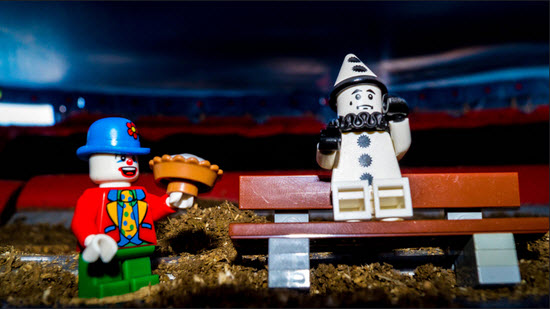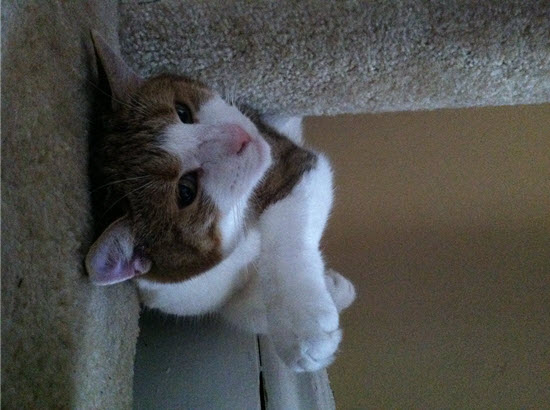I’ve seen Yelp from many angles: as a local SEO-er, as a local-reviews madman, as a consumer, as a two-year “Elite” reviewer, as a concerned citizen, and as a business owner.
That means I’ve got a love like-hate relationship with Yelp reviews.
It’s a nice feeling every time a client of mine gets a hard-earned review there. Also, I pay some attention to Yelp reviews when I’m debating where to take my open wallet.
On the other hand, Yelp is infuriating for most business owners. From the misleading (at best) ad-sales tactics, to the aggressive review filter, to the absurd policy that says you can’t even ask for a review, Yelp’s about as likeable as Genghis Khan.
Those issues are just the beginning. I can think of at least 20 difficulties with Yelp reviews you’ll have to navigate. You might have learned about some of them the hard way already. Now you can find out about the rest.
This isn’t just a mope-fest. You’ll learn a thing or two about how Yelp handles your reviews, and once I’ve laid out all the problems (that come to mind) you’ll probably think of ways to improve your reviews strategy.
Well-known problems
1. Yelp filters reviews – and often does a poor job of it.
2. You aren’t supposed to ask for Yelp reviews.
3. Reviews are the main factor for your rankings within Yelp, and Yelp’s category pages often dominate Google’s search results.
4. There’s a good chance a negative review will be visible on the first page of your brand-name search results, especially if the reviewer mentions your company by name.
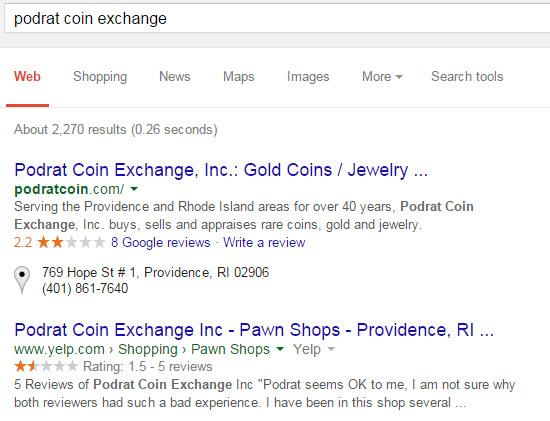
5. Yelp doesn’t make its policies apparent enough. Its “don’t ask for reviews” policy should be impossible for business owners to miss. That it filters most reviews by first-timers and other new reviewers should be obvious to would-be reviewers before they write anything.
6. As soon as you get even one Yelp review you’ll start getting sales calls, pressuring you to pay for ads. (I wouldn’t suggest you bite.)
7. Yelp is hard to avoid on the Coasts (especially on the West Coast). In certain cities – like San Francisco, Portland, and NYC – you’re probably behind a lot of local competitors if you don’t have at least a few reviews there.
Little-known problems
8. Yelp feeds reviews to Apple Maps, Bing Places, and Yahoo Local. Your bad reviews can show up on those 3 major local search engines (and beyond).
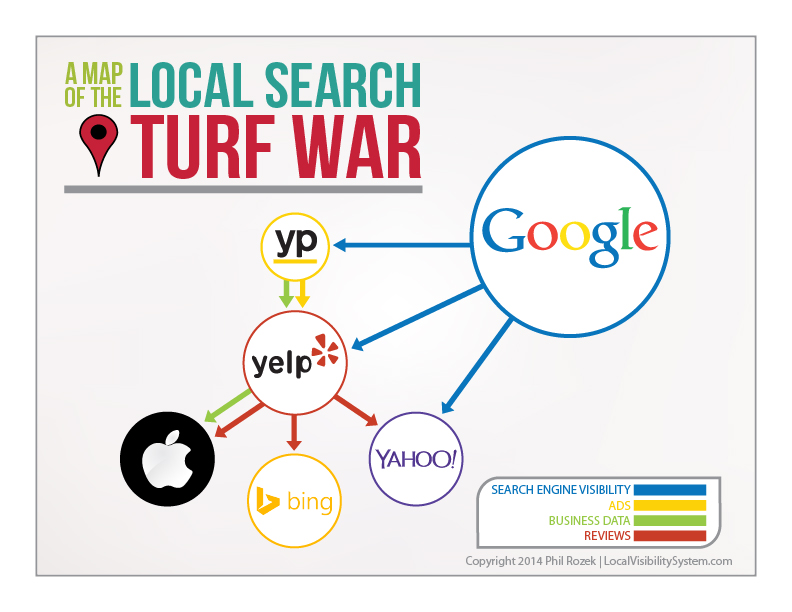 9. It usually takes 10-15 reviews before a Yelp reviewer is “trusted” and his/her reviews are no longer filtered often or at all. It’s not practical to ask your reviewers to make a habit of Yelping, so as to reach that number of reviews . That’s why the name of the game is to identify any customers / clients/ patients who are already active on Yelp, and to let it be known that you’re on Yelp and like feedback (wink, wink).
9. It usually takes 10-15 reviews before a Yelp reviewer is “trusted” and his/her reviews are no longer filtered often or at all. It’s not practical to ask your reviewers to make a habit of Yelping, so as to reach that number of reviews . That’s why the name of the game is to identify any customers / clients/ patients who are already active on Yelp, and to let it be known that you’re on Yelp and like feedback (wink, wink).
10. Yelp reviews can get filtered and unfiltered multiple times. It depends on whether the reviewer goes inactive for more than a couple of weeks. But this problem seems to go away once a reviewer has written about 15-20 reviews over a period of around 3 months.
11. Even some “approved” reviews can become collateral damage if later you get too many reviews that do get filtered.For example, let’s say you have 4 reviews. 2 of them were written by very active Yelpers (maybe “Elites”) and are safe. The other 2 were written by people with a handful of reviews each, and those reviews live happily on your page for a few months.
Now you put on your Icarus wings and ask half a dozen people who’ve never written a review on Yelp to review you. Their reviews show up on your page for a couple of days before going into the grinder – and 2 of your reviews written by sometime Yelpers get filtered, too. The only reviews that remain are the ones written by hardcore Yelpers.
12. Negative reviews appear somewhat more likely to stick.
13. The first review of a business is somewhat more likely to stick.
14. If your business’s first review on Yelp is negative it’s probably going to stick.
15. Reviews written by people with many “friends” are somewhat more likely to stick. It’s very easy to rack up “friends” on Yelp, so if you have a ticked-off customer with many “friends” you may have a problem.
16. Content has almost no bearing on whether a review gets filtered. It’s mostly about how active the reviewer is / has been. Swearing (as long as it’s not name-calling) is usually allowed. Also, the mischievous elves who man Yelp’s review filter seem entertained by the kinds of reviews that could have been ghostwritten by Jack Nicholson.
17. Reviews that you “flag” are very hard to get removed unless the text of the review is ad hominem or un-PC. The truthfulness of the review or credibility of reviewer doesn’t matter much to Yelp.
18. If your business moves to a new location Yelp probably won’t transfer your reviews.
19. Yelp reviews won’t show up in your knowledge graph.
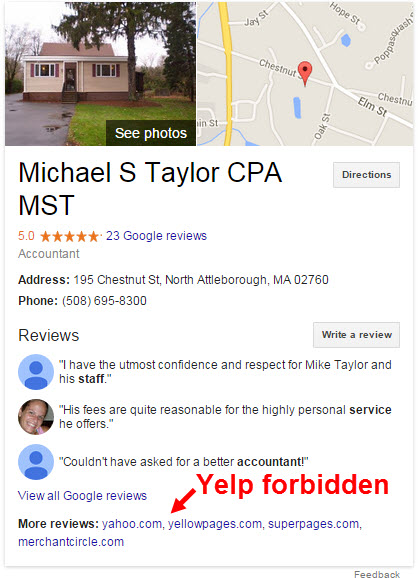 20. You’re at a disadvantage if you can’t or don’t want to offer a Yelp check-in offer. Why? Because if you do a check-in offer Yelp will ask your customers to write reviews. Pretty hypocritical, as I’ve argued.
20. You’re at a disadvantage if you can’t or don’t want to offer a Yelp check-in offer. Why? Because if you do a check-in offer Yelp will ask your customers to write reviews. Pretty hypocritical, as I’ve argued.
21. Yelp has been pushing the “not recommended” reviews farther and farther out of sight. You click the link to see “reviews that are not currently recommended,” you’re shown two filtered reviews, and then you have to scroll down and click another gray link that says, “Continue reading other reviews that are not currently recommended.” How many customers will do that? Oy.
22. Who becomes an “Elite” reviewer is arbitrary. It partly depends on whether your reviews get “voted” on, and whether you’ve written any “Reviews of the Day.”

But it seems to depend above all on whether your region’s “Community Manager” sees your reviews and likes them.
23. Only the first couple of lines of business owners’ responses will show up, unless readers click the small “Read more” link. Bad reviews will show in their Tolstoyan entirety, but you’ve got to say something compelling in haiku space, or else the would-be customer never sees your side of the story.
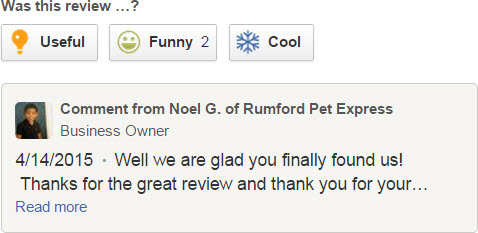
—
Don’t you feel better now? No? Time for a cat picture – and not just of any cat:
Now that we’re both in a happier place, let’s take up a weighty question:
Given the massive PITA factor, why on earth should you still pay any attention to Yelp?
Because the reviews get lots of eyeballs, and because Yelp is splattered across Google’s local results
What can you do?
Ask most or all of your customers for reviews, and give them choices (including easier sites). Some of those people will be Yelpers.
Link to your Yelp reviews – or just your page – on your website and in your email signature.
Identify already-active Yelpers and send them mind-waves.
Diversify where you get reviews.
Keep making customers happy.
—
Any observations on Yelp reviews?
Any strategy suggestions?
Leave a comment!
